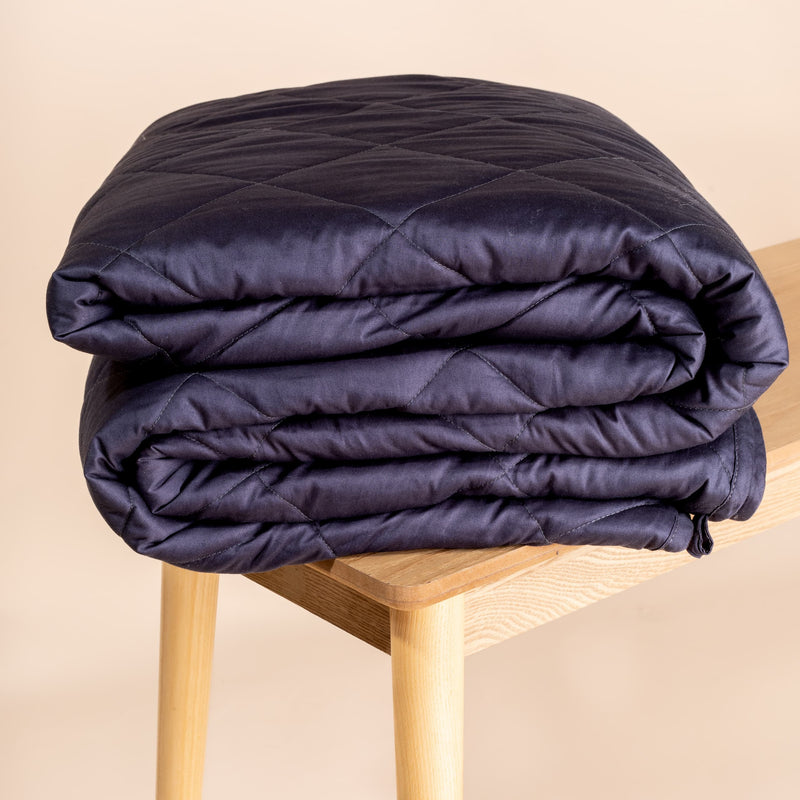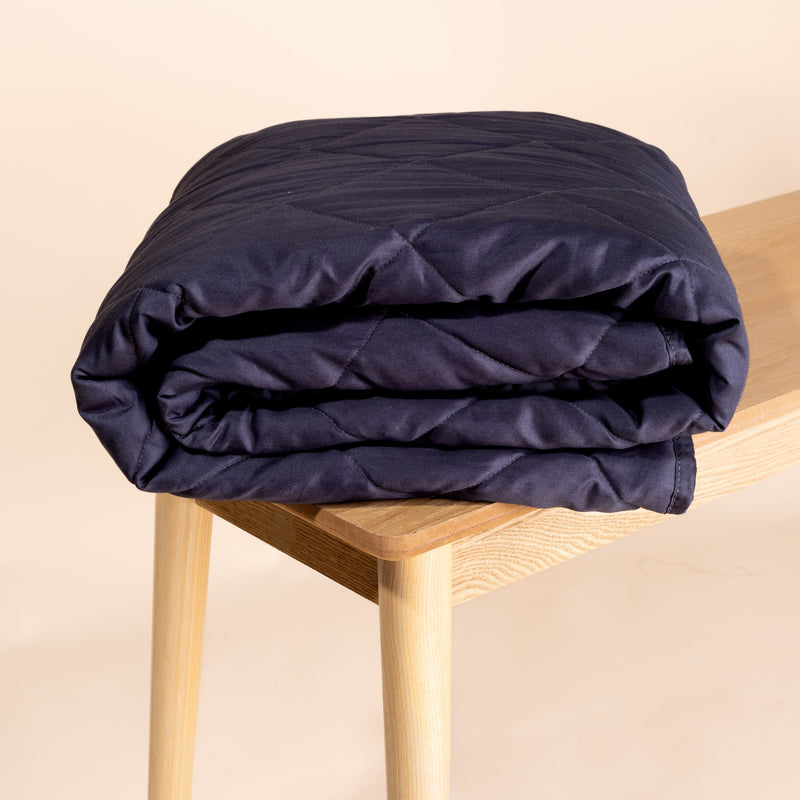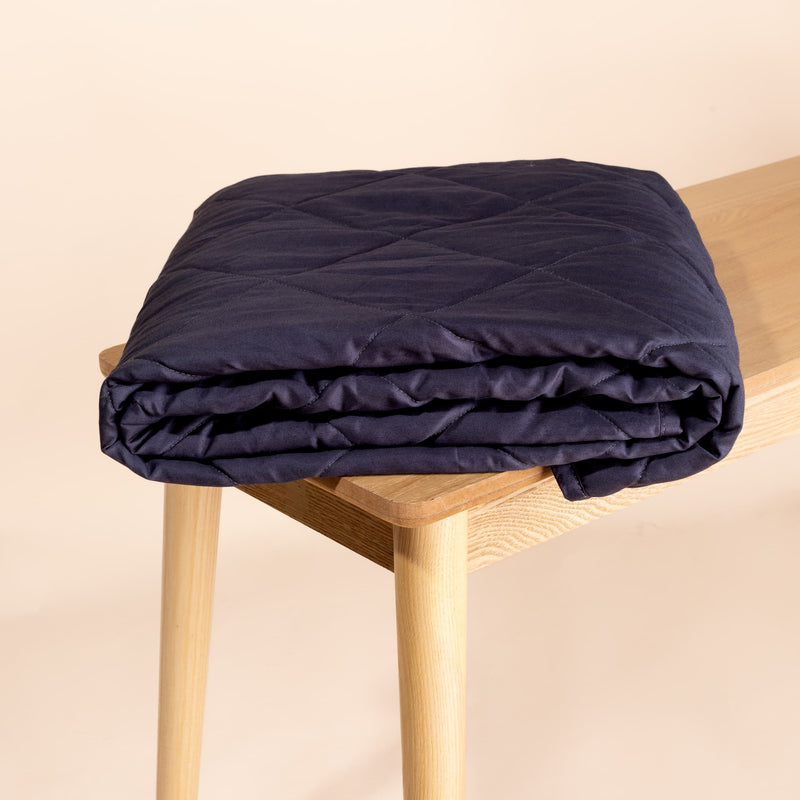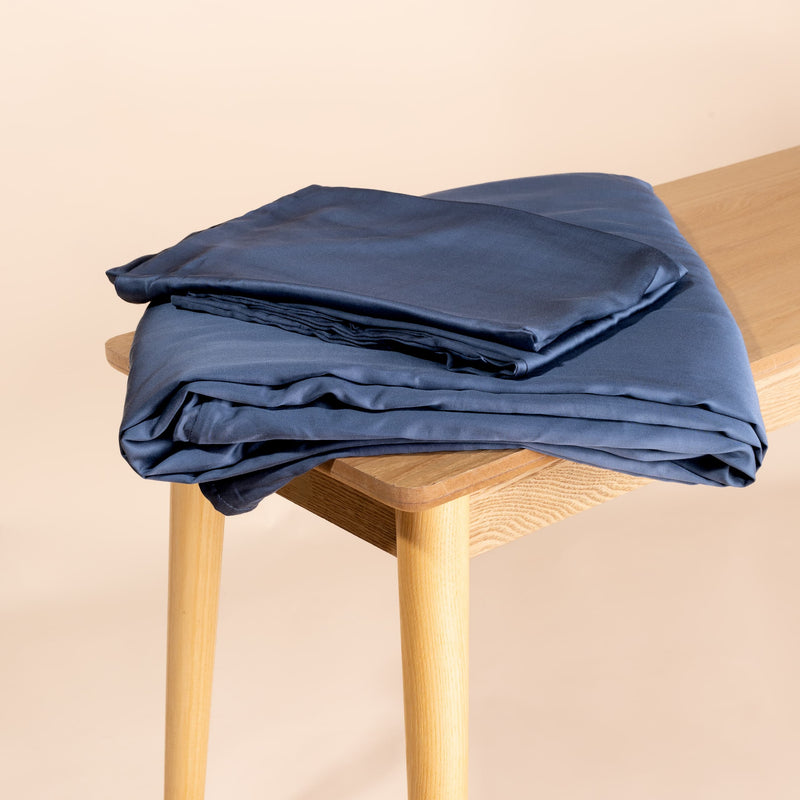Although there are more than 100 different types of arthritis, weighted blankets can offer promising benefits for reducing joint pain, stiffness, and other symptoms. They can promote relaxation, restful sleep, and a better mood, and can even help reduce the perception of chronic pain. Unfortunately, this does not work when the blanket puts too much pressure on the painful joints.
Weighted blankets promote relaxation
Did you know that stress and anxiety can amplify the perception of pain? This is one of the reasons why rheumatologists often recommend deep breathing exercises and other stress-relieving techniques to their patients. Symptoms can be minimized when you wrap yourself in a weighted blanket during the day. The pressure from the blanket can reduce the stress hormone cortisol, allowing your stress to gradually fade. This makes your pain seem more manageable. It can also help to listen to calm music or do deep breathing exercises while cozy under your weighted blanket.
Weighted blankets improve your mood
Many people who suffer from rheumatism also experience depressive symptoms. Ignoring depression can make the treatment of specific forms of arthritis, such as rheumatoid arthritis, more difficult. Therapy and medication are, of course, the gold standard for depression treatment. But if you're looking for a natural way to improve your mood, a weighted blanket can help you sleep better with depression. Just like receiving a hug, weighted blankets trigger a wave of mood-enhancing hormones - serotonin, oxytocin, and dopamine - that make you happier.
Weighted blankets promote restful sleep
Rheumatism and insomnia often go hand in hand. After all, it is difficult to get a good night's sleep when your joints feel painful and stiff. In addition to reducing the perception of pain and anxiety, weighted blankets stimulate the production of the sleep hormone melatonin, allowing you to fall into a deeper and more restorative sleep.
Sleep problems with rheumatism can be challenging, but with the right approach and lifestyle adjustments, such as creating a calming sleep environment and using a weighted blanket, a good night's sleep can be within reach. It is essential to remember that good sleep contributes to a better quality of life and the ability to face the challenges of rheumatism with resilience.













